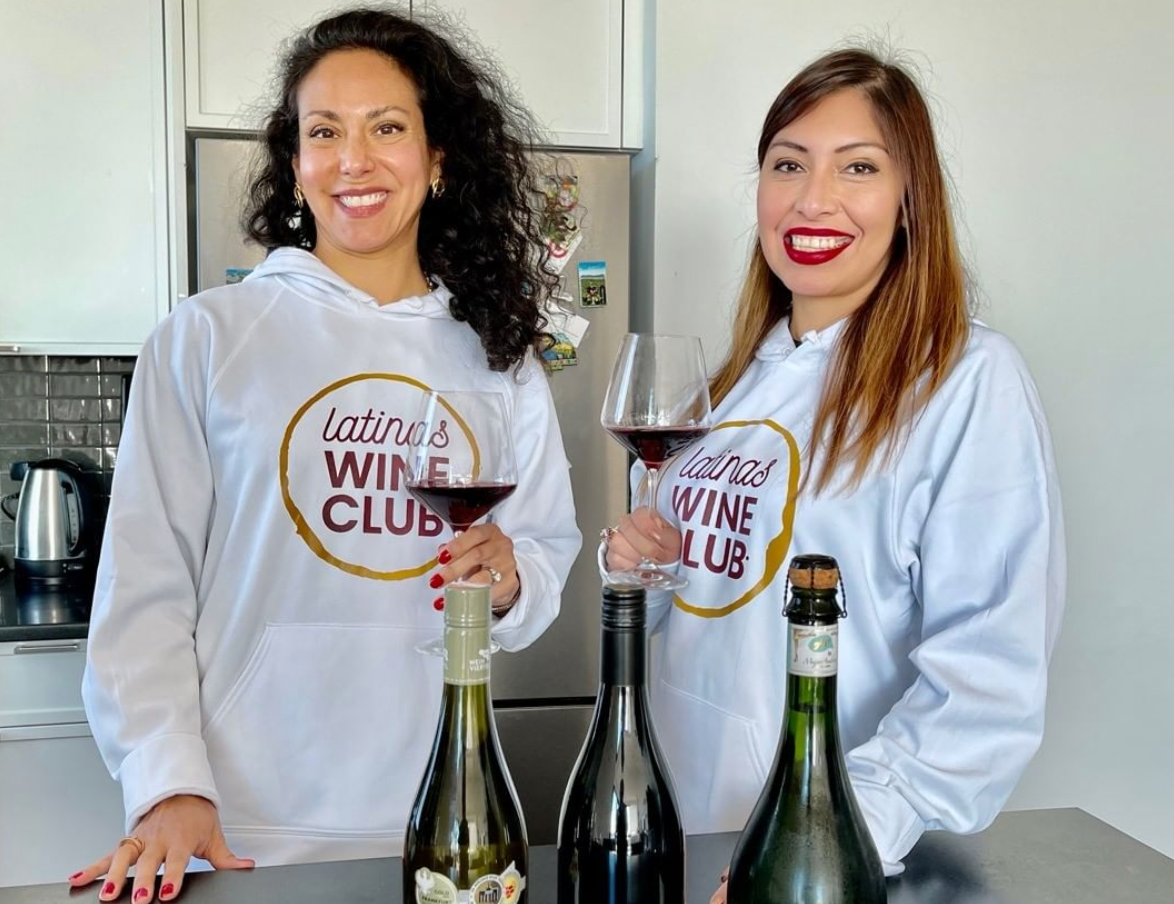The Latinas Wine Club’s mission is to be “aspirational yet achievable: to educate, empower and elevate our community by creating the first – and global – Latina wine collective”. Here’s how its co-founder, Erlinda Alexandra Doherty, hopes to do so.
Can you tell us about your background and how you got into the drinks industry?
My story is unconventional as I entered the wine industry much later than most – practically mid-life. Moreover, I’m a mother, and a Latina. I have a long career in advocacy and public policy but have always had a passion for wine as it is the amalgamation of all the great studies of the world – agriculture, science, history, art, sociology, history, psychology.
I also come from a multicultural background. My mother is Peruvian, my father Lithuanian, but wine appreciation was never a part of my upbringing or culture, nor was it viewed as something worth pursuing. As an adult, I had more opportunities to travel, became more exposed to international gastronomy and developed a desire to make those trips meaningful and deeper. I could find that purpose by exploring the history and significance of the wine regions of the countries I visited.
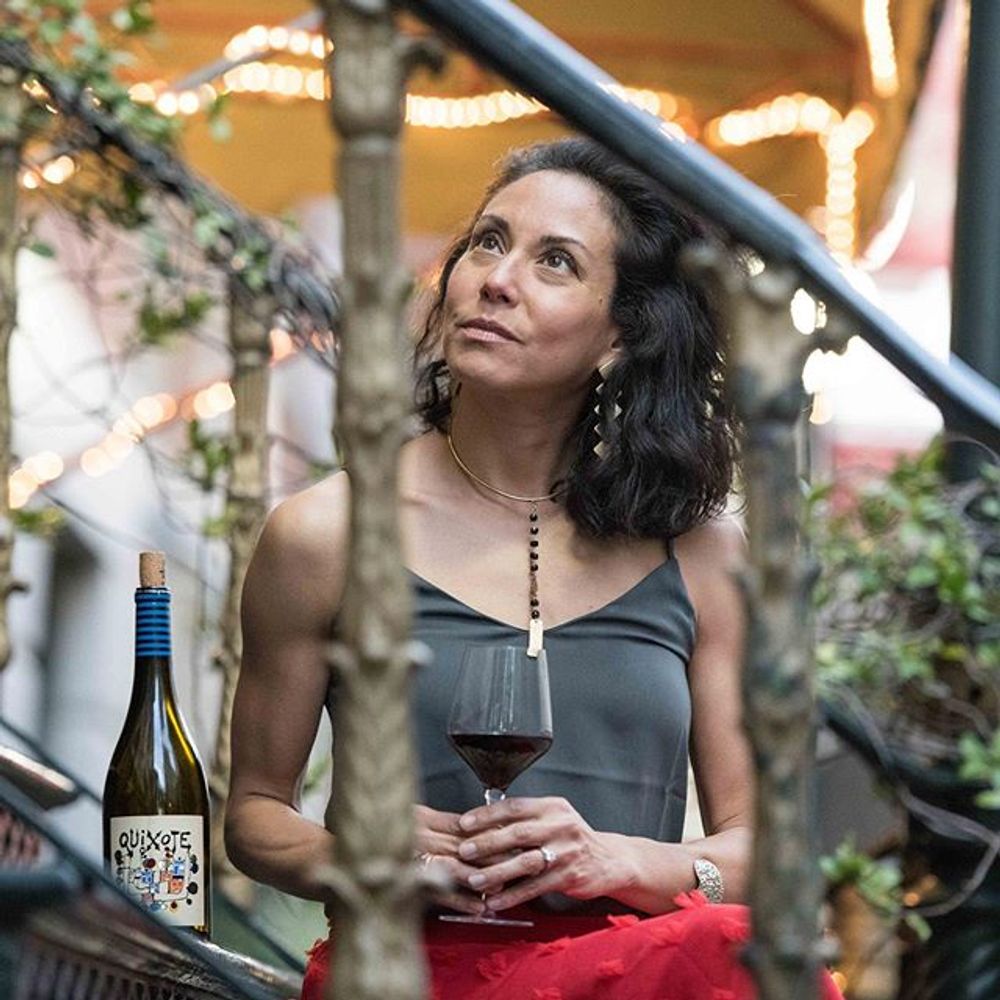
Erlinda Alexandra Doherty hopes the Latinos Wine Club can help support and promote better diversity across the wine and hospitality sectors
How did you get into wine specifically and how did you study?
I’m a mother of three with a full career, and when I made the decision to follow this passion, I had to make a true and deliberate commitment. I had no mentors and I knew the pursuit was going to take enormous self-drive, dedication, time, and financial resources. With those notions in mind, five years ago I began my formal education and attained certifications by various organisations.
I eventually received the Level 3 award with merit from the WSET, certified specialist in wine from the US-based Society of Wine Educators, Level 1 Award from the Court of Master Sommeliers, and the certified sherry wine specialist award from the Consejo Regulador de Jerez.
I had to be extremely disciplined and prioritise my time and combine independent reading and tasting of wines, as well as organising tasting groups with the few other wine enthusiasts with whom I could connect. It was mostly a solo journey. I also began teaching wine classes to both novices and professionals and found that to be integral to putting wine studies into practical application.
How did you become a sommelier and why did you want to follow that side of your career?
I truly wanted to have the sommelier experience. I wanted to understand the true challenges and joys of working the floor, interacting with customers, performing proper wine service, creating a wine list from ground up, training staff, working with media and suppliers. I wanted to evangelise wine to clients and elevate their dining experience. Then the opportunity came to help launch an upscale steakhouse in my area that was looking for a sommelier. I applied knowing I was going to be very non-traditional applicant.
How did you find life as a sommelier?
I found the experience extremely rewarding as I was finally able to put all my formal wine education and deep passion to practical use. I was able to appreciate all aspects of the restaurant business while being able to gain additional skills. And above all I truly enjoyed educating guests on the infinite options of wine and encourage diners to try new wines, explore new flavours, and dispel wine myths. That was truly fulfilling. I also enjoyed training staff and serving as a mentor for younger staff. Their passion reminded me of my own.
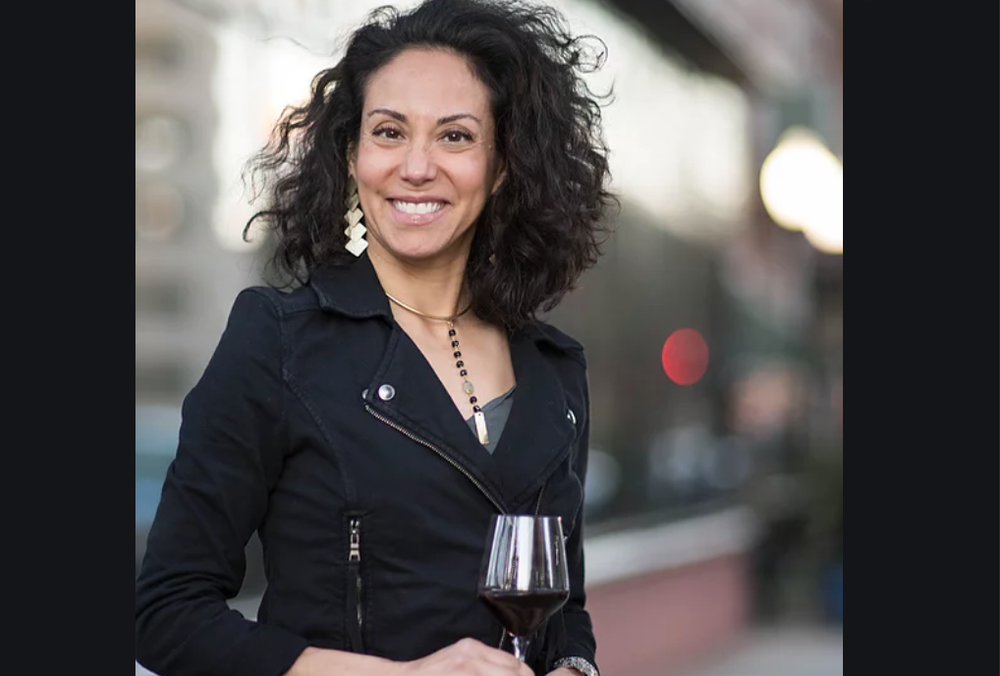
Erlinda Alexandra Doherty says her passion for wine drove her to self educate herself and start a career as a sommelier – but quickly found it a hard career as a mother and woman of colour
What did you find particularly challenging being a sommelier and would like to see serious steps being made to change?
I eventually had to resign the position because the schedule and lifestyle were unsustainable. I quickly realised the support system for employees -especially mothers – is completely absent. There is no true structure in place to support employees, to instil professional development, and for work-life balance. Obviously these are serious issues not just for sommeliers, but for restaurant professionals in general.
Equally terrible were the not-so-subtle displays of sexism and harassment I experienced while working. These occurrences were also a huge factor in my decision to leave the position.
Addressing these issues will take a holistic view of the industry as a whole, to include most importantly zero tolerance for sexism or harassing behaviour. There needs to be transparency with respect to actions being taken within the industry and no excuses for hiding or concealing bad behaviour. There also needs to be more instilling of support systems for people from all backgrounds and experiences to truly be able to call the hospitality industry a career and not simply a temporary or transient job. Sommeliers need and deserve the necessary infrastructure if these talented individuals are to deem it a true “profession.”
There also needs to be deliberate efforts to hire women, more people of colour, more people from different stages of life, diversity in general. “All people” people drink wine, therefore “all people” should be represented. And there should be a “cleaning house” of bad actors with no delay. A public mea culpa is in order for the healing to begin in our turbulent industry.
Finally, there needs to be widely-available, approachable, and affordable educational resources provided for all types of people – especially those from economically disadvantaged backgrounds. Wine education for too long has been only available for the privileged few. And education in wine, as it is in every other aspect of our society, is the great equaliser (or at least in theory!).
You have set up the Latinas Wine Club. Can you explain the reason behind wanting to do that?
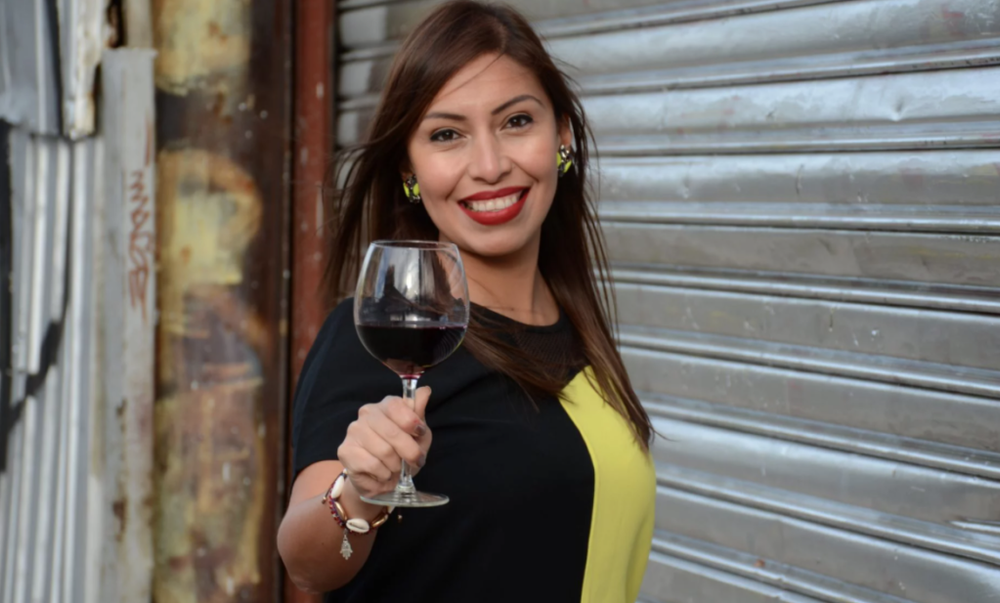
Martha Cisneros and Erlinda Alexandra Doherty have set up the Latinos Wine Club together to give a voice to fellow Latinos working in the wine and hospitality sectors
As a Latina sommelier I had to overcome a double disadvantage to pursue this career. Women were already unrepresented, and sadly in many cases, mistreated, but there are very few Latino wine professionals as well. Expensive barriers to entry, discrimination, and an overall aura of intimidation are many of the reasons for this lack of representation.
When Covid-19 descended upon my career as a wine educator and sommelier I struggled to find a way to connect with my clients and students. I was reluctant at the onset to enter the virtual world. But I had to find a way to continue my passion and nascent profession and launched a virtual sommelier and wine education platform. Eventually I realised the benefits of connecting to others in this online environment and transitioned my services to this new vehicle for engagement.
Shortly after I adapted to virtual vino, we endured a series of social injustices regarding police brutality against African Americans. While definitely not new, the recent outpouring of social justice activism in all sectors of our economy and society motivated me to draft a “call to action” for those in the wine industry -from consumers through corporate entities. I had experienced my own discrimination, mistreatment, and intimidation and I wanted to contribute to the outcry and dialogue initiated by my fellow wine professionals of colour.
In penning the article and committing to the virtual environment, I connected with my partner Martha Cisneros, a wine blogger and wine student, who featured my article on her social media accounts. She had created an Instagram page that featured Latina wine enthusiasts. Together we saw the need to connect, support, and encourage other Latinas. I knew there were many other Latinas who shared my challenges, passion, and desire to connect through the pandemic’s isolation.
I knew we were underrepresented and sensed an urgent need to have a collective voice in the industry. We saw an opportunity to do this in a global fashion thanks to our new virtual world and launched the Latinas Wine Club.
What do you hope the Latinas Wine Club can do and achieve for its members and the wider trade?
Our mission is to connect, support, and create an international platform for Latina wine professionals and enthusiasts. We want to provide resources for Latinas who want to deepen their knowledge in a space that is approachable, encouraging, and engaging. We want to support Latina winemakers, suppliers, and distributors in the industry as well. We want to increase the influence, achieve parity, and showcase the contributions of Latinas in the wine industry despite the socio-economic disadvantages, and outright mistreatment, many of us have faced.
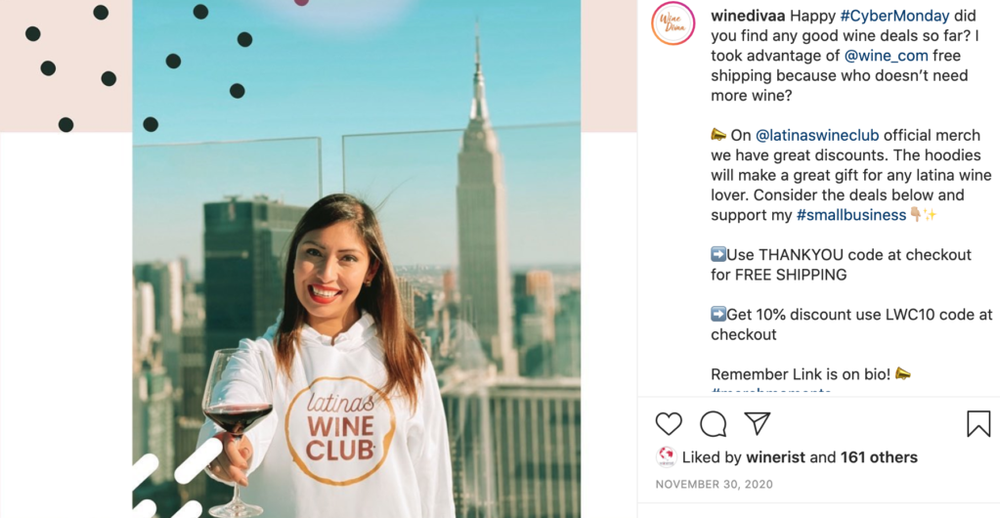
It was the Instagram posts from Martha Cisneros promoting Latinos in wine that prompted Erlinda Alexandra Doherty to get in touch to see if they could work together
We also acknowledge that we Latinas are also a diverse group. We all have distinct cultural elements, and different life experiences and backgrounds. Nevertheless, we want to change the image and reputation held by those that currently dominate the industry of Latinas and women in wine.
The core of all this is wine education. Our main mission is to deepen the knowledge of our members. We want our members to be confident and well-versed about the wine world. We want them to be able to contribute to our industry’s dialogue. As the US’s fastest growing demographic, we can harness this knowledge and influence the market.
How is the club going and what are you doing to recruit members and promote what you are doing?
We officially launched our Club on October 15 2020 to commemorate the conclusion of Hispanic Heritage Month and have been overcome with enthusiastic interest. We’ve been maximising social media outlets, garnered the interest of international and bi-lingual media, and are offering free wine education classes to prospective members.
Those interested can join at www.latinaswineclub.com and follow us @latinaswineclubinc to see all the benefits we have curated. We are actively recruiting and would of course appreciate any help we can get to reach Latinas around the world. Our membership levels are located on the website. And all memberships contain access to our education program.
We have also reached out to importers, suppliers, and distributors who have expressed interest in supporting our mission. They recognise the opportunity for them to educate and promote their wine to a dynamic and growing group of wine enthusiasts who are facile with social media, who are interested in learning more about wine, and who will seek out products that are socially responsible. We have several Latina-owned suppliers who have reached out as well and with aligned goals hope to strengthen these ventures.
You have a saying “Educate. Empower. Elevate. …Through Wine.” Can you explain what you mean by that and how you are doing so?
I developed this motto because I wanted to distill our mission into a few words on which we could all galvanise. I know as a Latina that the primary way to achieve goals oftentimes means we have to be more educated than those around us. We have to learn as much as we can about wine and the industry in order to transform and address its inequities.
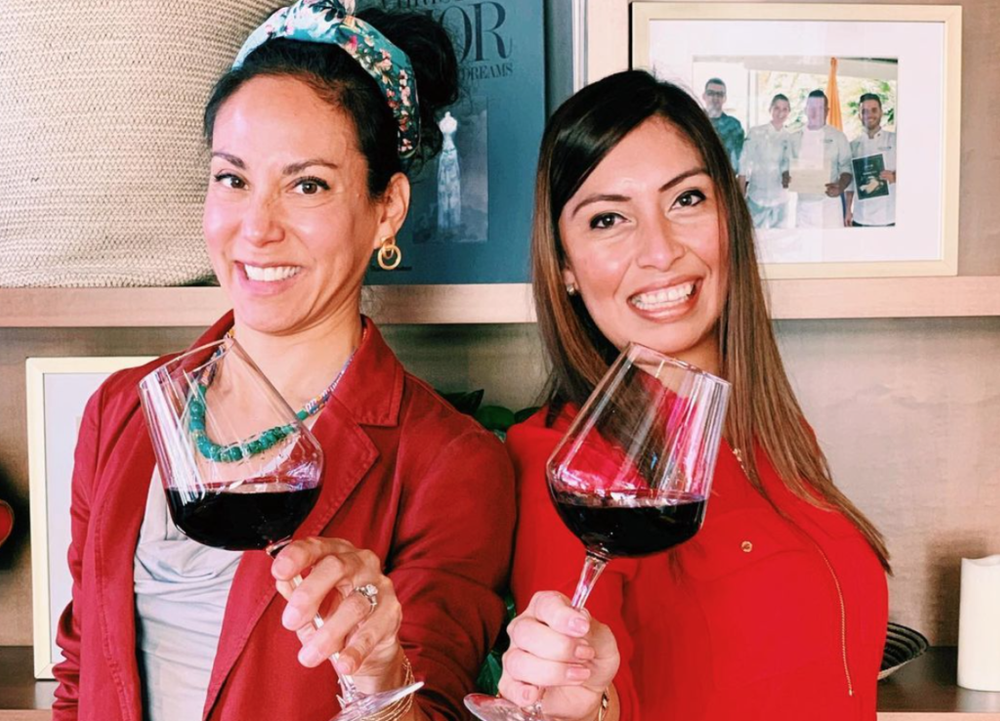
“We want to provide resources for Latinas who want to deepen their knowledge in a space that is approachable, encouraging, and engaging,” says Erlinda Alexandra Doherty
Wine education also increases one’s worldliness and imbues a larger perspective of the world. We become more global-minded and open to discovering new cultures, traditions, and histories in this way. It is through wine education that we hope to support and embolden Latina wine professionals and increase our presence in the wine industry.
Through education we will empower our Latinas and elevate our influence in the world of wine. We will support our fellow Latina wine professionals and create a collective voice for change.
I’m in the process of creating our own customised education program – WineSchool. I will take my experience as a sommelier and a wine educator and craft a program that is approachable, engaging, and practical. Too often, wine education is intimidating, overly-esoteric, and un-relatable to the majority of wine enthusiasts. Most programs are also unaffordable so my goal is to craft a curriculum that is geared towards our community, using relatable methods, with practical objectives.
And because education is core to our mission, it is included in all our membership packages. As one of the few Latina sommeliers I feel a special responsibility for ensuring our Latinas are mentored, are set up to succeed in their wine journey, and that I many inspire a few to become “wine activists” themselves.
Have you been encouraged by the steps taken in 2020 to make diversity and inclusion a central issue for the wine industry?
While definitely belated and overdue, I’m definitely encouraged by the acknowledgement of the wine industry establishment to address these inequities. The outcries of my fellow people of colour in the wine industry have inspired me to find my own voice, as well as create the Latinas Wine Club.
What ambitions do you have in your own wine career and the kind of roles and impact you can make?
My ambitions are truly modest. I consider myself a student of wine even though I am a wine educator and a sommelier. I always consider my efforts to be successful if I can encourage someone to try a new wine, to break away from their comfort brand, or to dispel a wine myth. Too often in this industry egos have dominated and intimidated, and I hope I can contribute to reforming that image…one student at a time.
With respect to the Latinas Wine Club, If I can inspire other Latinas to pursue their vino voyages, I will have succeeded. If I can help increase our presence and influence in areas where we have been ignored, I will have succeeded. If I can make our Latinas feel more confident and embolden them to explore the world of wine, I will have succeeded. And if I can encourage our Latinas to become more vocal for change in our industry, I will have succeeded.
For anyone looking to make their way in the wine and hospitality sectors what advice would you give them to get on?
We are at a critical—and exciting—crux in our industry both due to the pandemic and because of the focus on diversity and inclusion. Take advantage of this seismic disruption and hold the wine industry accountable. Rules are being rewritten, recreated, reimagined. This is the time to educate yourself, create the opportunities, but be also aware of the industry’s shortcomings – for there are many!
Find like-minded eno-enthusiasts and band together to strengthen your network and collaborate to improve the wine industry. The industry was ripe for change even before the pandemic—now is the time to fix it in all its inequities.
- If you would like to share your experiences about working in the drinks and hospitality sectors and steps you are taking to help promote better diversity and inclusion then please email Richard Siddle at richardsiddle@btopenworld.com.
